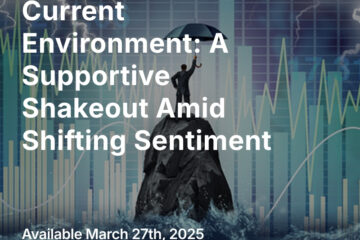Our Upcoming Conference Call: Optionality Is King
We have written before that the investment climate has changed dramatically. The cost of money is rising, and the risks of illiquidity episodes are rising. This is probably not the time to be locking yourself into anything, unless you absolutely must (e.g., you need to make a 1031 exchange for tax deferral purposes). In our view, current conditions and the speed of current developments indicate a cardinal truth for investing in 2022: liquidity and optionality are king.
This will be the theme of our upcoming conference call, which we’ll host at 10 AM Pacific on March 24. Please join us — you can click here to register today.
The Fed Speaks
In yesterday’s (March 16, 2022) announcement, The Fed’s message was hawkish, but their clarity and transparency about upcoming interest rate increases was welcomed by markets — uncertainty is worse for Mr Market than bad news. At the same time, no clear details were announced about the plan to reduce the Fed’s balance sheet, which left an area of uncertainty (or perhaps hope).
In any event, even looking past Russia’s war in Ukraine and its global inflationary and disruptive effects, the overarching story has been that central banks that poured too much fuel on the fire and continued to do so long after many signals were screaming at them to stop. They will now be forced to raise rates until their economies enter recession — the length and severity of which depend on many factors.
The sentiment for markets has been getting progressively more negative since the end of 2021. Sentiment perhaps got too negative and set the stage for a relief rally. In general, we are cautious on stocks, and we do not believe the correction has run its course. There is still plenty of uncertainty around geological developments, corporate profits, rising costs impacting margins, inflation, etc. – yet getting this first interest rate increase behind us could be enough to provide a decent bounce. We are attentive as usual to some bargains that have appeared, particularly in the beaten-down tech leaders whose thematic relevance and cash flow generation are still very strong. We believe that within the semiconductor industry there could be some good opportunity. A couple weeks ago we discussed lithium being the “lifeblood” of the electrified world; well we see semiconductors as “the nervous system” of the global economy. We will be writing about semis after our upcoming conference call. We are also watching for a bottom and keeping our buy list fresh.
We believe that many commodities became overbought during the wave of anxiety brought on by the war recently, and as they correct in price, we would ultimately be buyers of the commodities that are systemically important for the digital economy, including uranium, lithium, copper, and rare earths.
We also believe that even though crypto currencies have taken some of gold’s luster, a period of good performance for the yellow metal is likely, boosted by current events and governments’ new appreciation of the pressure that can be brought to bear by the application of financial and economic sanctions. In an environment where government edicts are freezing assets, trashing free trade, tearing up contract law, and undermining business as usual, crypto currencies are demonstrating their unique utility. Gold also provides some of that same utility, and should benefit.
The bottom line is that we see signs that the investing environment is fundamentally changing, yet new bull markets are being created. At the same time new risks are also being created; some are risks that many investors and investment professionals may not have experience with.
In Guild’s five-plus decades, we have seen — and have had experience managing potfolios in — many different environments.
We want to participate in the new bull markets for our clients, and we believe it is important to do it in a manner so that their portfolios maintain liquidity, flexibility, and optionality, without using any leverage or margin.Using leverage can cede power over ones’ investment decisions to someone else. Now may not be the time for that.
Thanks for listening; we welcome your calls and questions.



